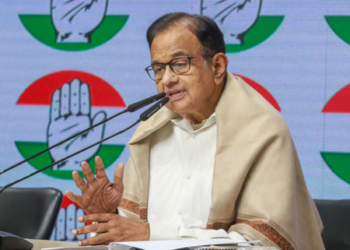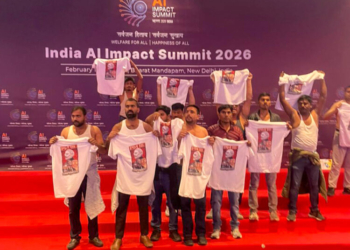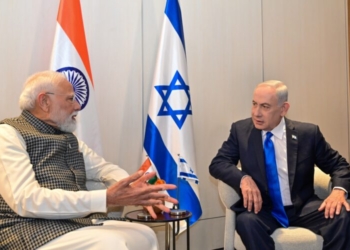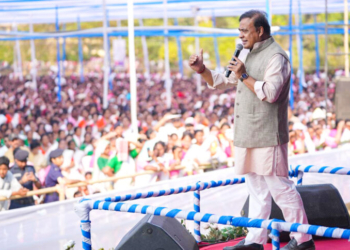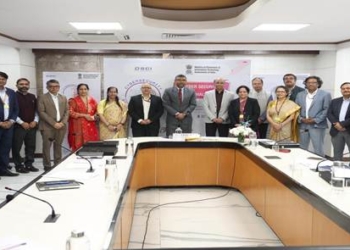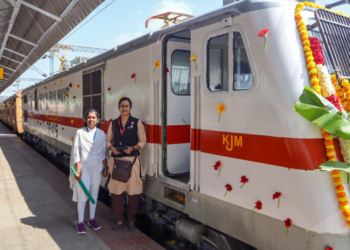New Delhi: In a move that is sure to give sporting talent a leg up and the country more medals, Union Minister for Information & Broadcasting and Youth Affairs & Sports, Anurag Thakur, revealed on Wednesday that medal winners in all Khelo India competitions would henceforth be eligible for government jobs as per revised criteria.
In a post on his X handle, Thakur said the move was in keeping with Prime Minister Narendra Modi’s “vision of a robust sports ecosystem, nurturing talent at the grass roots level and turning sports into a lucrative and viable career option” for the youth of India.
The minister announced that the Department of Personnel and Training, in consultation with the Sports Ministry, had made “progressive revisions to the eligibility criteria for sportspersons seeking government jobs.”
“This groundbreaking step now extends eligibility to medal winners from the Khelo India Games — Youth, University, Para and Winter Games — to be eligible for government jobs. Additionally, games and events have been clearly defined to ensure inclusivity across various sports,” he posted on X.
This move by the Centre is set to benefit Punjab and Haryana the most as they produce the maximum number of sportspersons in India.
These two states, which are at present reeling under farmers’ protest over the demands for a legal guarantee for the Minimum Support Price, also have the maximum number of Khelo India Athletes (KIAs).
This means that out of all the states in India, they are already getting the maximum benefit of the financial support of Rs.10,000 per month provided by the government to each KIA, as out of a total of 2,752 sportspersons receiving aid, 467 are from Haryana and 169 from Punjab.
Plus, details of infrastructure projects that were built under the Khelo India Scheme reveal that a whopping 11 projects have been undertaken in Punjab.
Pan-India, this added benefit for KIA sportspersons will also see an increase in participation by the youth as they will be assured of a secure future if they do well in their chosen sport, something that till now was only reserved for Olympians, exceptional sportspersons and winners at other major international events.
The Khelo India initiative, that was first organised in 2018 by the PM Modi Government with a budgetary allocation of around Rs 4,000 crore has played a major role in revitalising sports and creating a sporting culture at the grass roots level.
It has also led to a marked improvement in India’s performance at international events.
Significantly, the Khelo India initiative was a result of PM Modi’s discussions with sportspersons to try and understand why a country with such a huge population and immense sporting talent failed to make a mark in international competitions.
The resultant infrastructure that was set up across the country after 2018, saw India reaping the benefits as it bagged a total of 107 medals at the 19th Asian Games in Hangzhou, People’s Republic of China in October 2023, a tally unheard of in a medal-starved nation.
The 2020 Tokyo Olympics also saw India getting a record seven medals, a haul it could only dream of throughout its history, save in 2012 when it bagged six medals breaking a protracted poor spell.
This marked improvement in the performance of Indian sportspersons was to a large part the result of the ‘Target Olympic Podium Scheme’, under which players were given an allowance of Rs 50,000 per month each, world-class quality training, technical facilities and equipment.
In fact some big players have attributed their success to both, the ‘Target Olympic Podium Scheme’ and ‘Khelo India’ competitions.
For instance PV Sindhu vouched that she benefitted from the ‘Target Olympic Podium Scheme’ just as Manu Bhaker, who won a gold medal in shooting at the Asian Games, credited the ‘Khelo India’ competitions for her success.
This new initiative to provide a financially secure future to the country’s sportspersons will surely see the participation of more young people in sports, it will help in discovering and nurturing talent and result in a bigger medal tally in the years to come.
(IANS)




